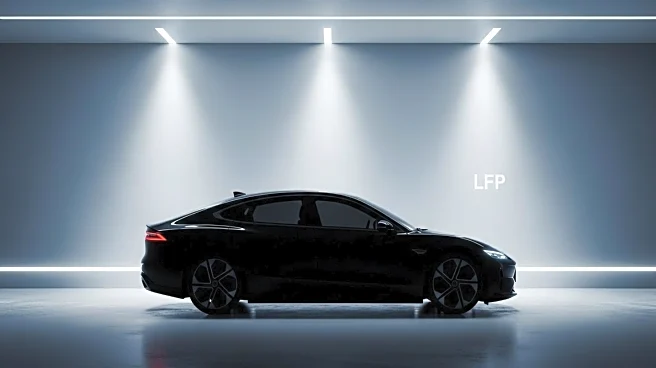What is the story about?
What's Happening?
Chevrolet has announced the return of its Bolt electric vehicle for the 2027 model year, featuring a new lithium iron phosphate (LFP) battery. The Bolt, which was previously discontinued, will now include a 65 kWh battery pack that offers a range of 255 miles. This new battery technology replaces the previous nickel cobalt aluminum cells, allowing for faster charging and bidirectional capabilities, including vehicle-to-home charging. The vehicle will maintain its previous design but introduce new colors and trim levels. The decision to revive the Bolt follows negative reactions from EV enthusiasts and Bolt owners after its discontinuation.
Why It's Important?
The revival of the Chevrolet Bolt with an updated battery technology is significant for the electric vehicle market in the U.S. The introduction of LFP batteries, known for their safety and cost-effectiveness, could influence other manufacturers to adopt similar technologies. This move by Chevrolet may enhance competition in the EV sector, potentially leading to more affordable and efficient electric vehicles. Additionally, the bidirectional charging capability aligns with growing consumer interest in energy independence and sustainability, offering practical benefits for homeowners.
What's Next?
Chevrolet plans to release the 2027 Bolt next year, with expectations of strong consumer interest given the improvements in battery technology and charging capabilities. The automotive industry will likely monitor the market response closely, as the success of the Bolt could encourage other manufacturers to explore LFP batteries. Stakeholders, including environmental groups and EV advocates, may push for broader adoption of such technologies to reduce reliance on more expensive and less sustainable battery materials.
Beyond the Headlines
The decision to bring back the Bolt highlights the influence of consumer feedback on corporate decisions, particularly in the automotive industry. It underscores the importance of listening to customer demands and adapting product offerings accordingly. This development may also prompt discussions on the environmental impact of battery production and the need for sustainable practices in the EV industry.















